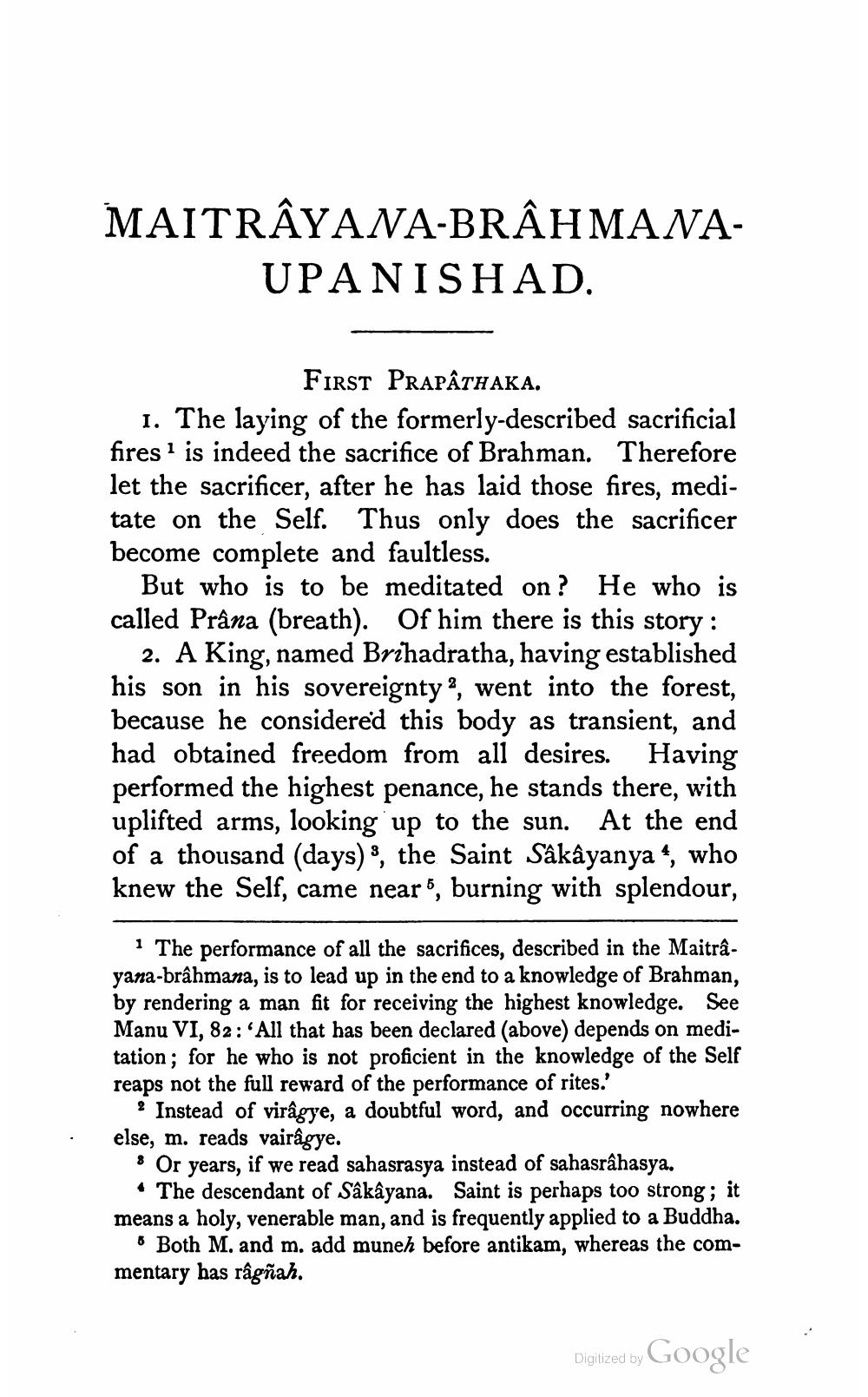________________
MAITRÂYANA-BRÂH MANA
UPANISHAD.
FIRST PRAPATHAKA.
1. The laying of the formerly-described sacrificial fires is indeed the sacrifice of Brahman. Therefore let the sacrificer, after he has laid those fires, meditate on the Self. Thus only does the sacrificer become complete and faultless.
But who is to be meditated on? He who is called Prâna (breath). Of him there is this story:
2. A King, named Brihadratha, having established his son in his sovereignty 2, went into the forest, because he considered this body as transient, and had obtained freedom from all desires. Having performed the highest penance, he stands there, with uplifted arms, looking up to the sun. At the end of a thousand (days), the Saint Sâkâyanya, who knew the Self, came near, burning with splendour,
1 The performance of all the sacrifices, described in the Maitrâyana-brâhmana, is to lead up in the end to a knowledge of Brahman, by rendering a man fit for receiving the highest knowledge. See Manu VI, 82: 'All that has been declared (above) depends on meditation; for he who is not proficient in the knowledge of the Self reaps not the full reward of the performance of rites.'
2 Instead of virâgye, a doubtful word, and occurring nowhere else, m. reads vairâgye.
8 Or
years, if we read sahasrasya instead of sahasrâhasya.
• The descendant of Sâkâyana. Saint is perhaps too strong; it means a holy, venerable man, and is frequently applied to a Buddha. Both M. and m. add muneh before antikam, whereas the commentary has râgñah.
Digitized by Google




